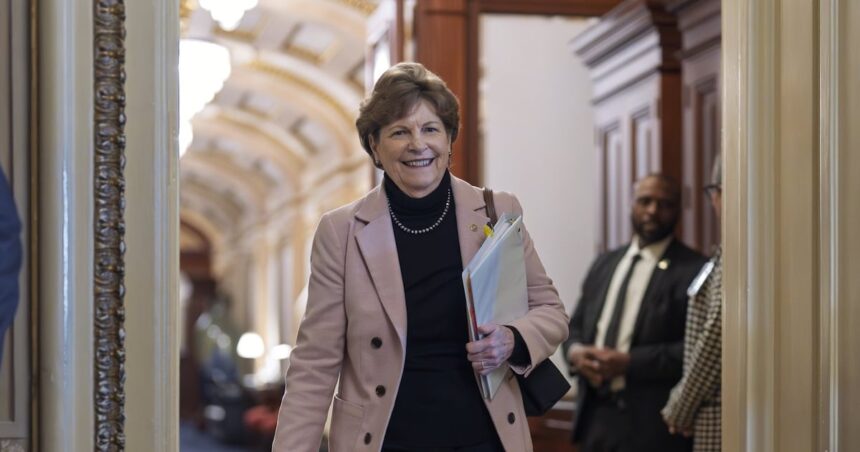As I strolled across Parliament Hill yesterday morning, the heightened security presence immediately signaled something beyond our typical Ottawa political routines. A delegation of U.S. senators arrived in the capital for high-level discussions with Prime Minister Mark Carney, marking one of the first significant international engagements of his new administration.
The bipartisan American delegation, led by Senate Foreign Relations Committee Chair Ben Cardin, included six senators eager to strengthen the critical cross-border relationship that defines so much of our economic and security landscape.
“These early diplomatic exchanges set the tone for Canada-U.S. relations under the Carney government,” explained Dr. Jennifer Patterson from Carleton University’s Norman Paterson School of International Affairs. “First impressions matter tremendously in international relations.”
The senators’ agenda focused heavily on trade, border management, and shared defense priorities – perennial topics between our nations but now colored by new leadership dynamics on both sides of the border.
During a brief media availability, Senator Cardin emphasized the enduring partnership. “Our relationship with Canada transcends individual administrations. We’re here to ensure continuity in our most important bilateral relationship.”
The timing couldn’t be more significant. With Carney still establishing his governing approach and U.S. elections looming in November, these discussions may help stabilize cross-border relations during a potentially volatile political period.
“We’re seeing a deliberate effort to maintain institutional connections regardless of who occupies the White House next year,” noted Stephanie Williams, senior policy analyst at the Canada Institute. “Both countries recognize the dangers of diplomatic unpredictability.”
Sources within the Prime Minister’s Office, speaking on background, indicated that supply chain resilience and critical minerals strategy dominated the substantive discussions. With both countries focused on economic security, conversations reportedly centered on reducing dependencies on overseas manufacturing and strengthening North American production capacity.
Local impacts of these high-level talks shouldn’t be underestimated. For Ottawa businesses engaged in cross-border trade, the diplomatic tone set during these meetings could affect everything from customs processing to regulatory cooperation.
“When senators visit Ottawa, they bring staff who interact with our agencies at multiple levels,” explained James Morrison, president of the Ottawa-Gatineau Border Trade Association. “These person-to-person connections often solve problems that formal diplomatic channels can’t address.”
The delegation also met with several cabinet ministers, including Foreign Affairs Minister Mélanie Joly and International Trade Minister Mary Ng, suggesting a comprehensive approach to relationship-building across multiple policy domains.
For everyday Ottawa residents, the visit created brief traffic disruptions as the senatorial motorcade moved between Parliament Hill and Rideau Hall, where Governor General Mary Simon hosted a working lunch. The temporary inconvenience reflected Ottawa’s unique position as both a government town and community where international diplomacy regularly intersects with daily life.
While covering these diplomatic exchanges over two decades, I’ve noticed how the formality of official readouts rarely captures the relationship-building that happens during these visits. The casual conversations between meetings, the shared cultural references, and even the weather small talk all contribute to diplomatic relationships that sustain our cross-border cooperation.
What makes this delegation particularly noteworthy is its bipartisan composition. With Senators Susan Collins (R-Maine), Chris Coons (D-Delaware), John Cornyn (R-Texas), Lisa Murkowski (R-Alaska), and Jeanne Shaheen (D-New Hampshire) joining Chairman Cardin, the group represents diverse regional and political perspectives within American governance.
“This isn’t just about current policy alignment,” said former Canadian diplomat Michael Carson. “It’s about building relationships with American lawmakers who will influence U.S.-Canada relations regardless of who controls the White House or Senate.”
The visit concludes today with tours of Canadian border security operations and meetings with business leaders before the delegation returns to Washington.
For Ottawa, these diplomatic rhythms are familiar yet always consequential. As the capital city of a nation whose prosperity depends heavily on its relationship with its southern neighbor, each senatorial visit represents another thread in the complex tapestry of Canada-U.S. relations.
As the motorcades depart and Parliament Hill returns to its regular pace, the real work of implementing whatever understandings were reached begins – work that will ultimately determine whether this diplomatic exchange truly strengthens the bonds between our nations.







